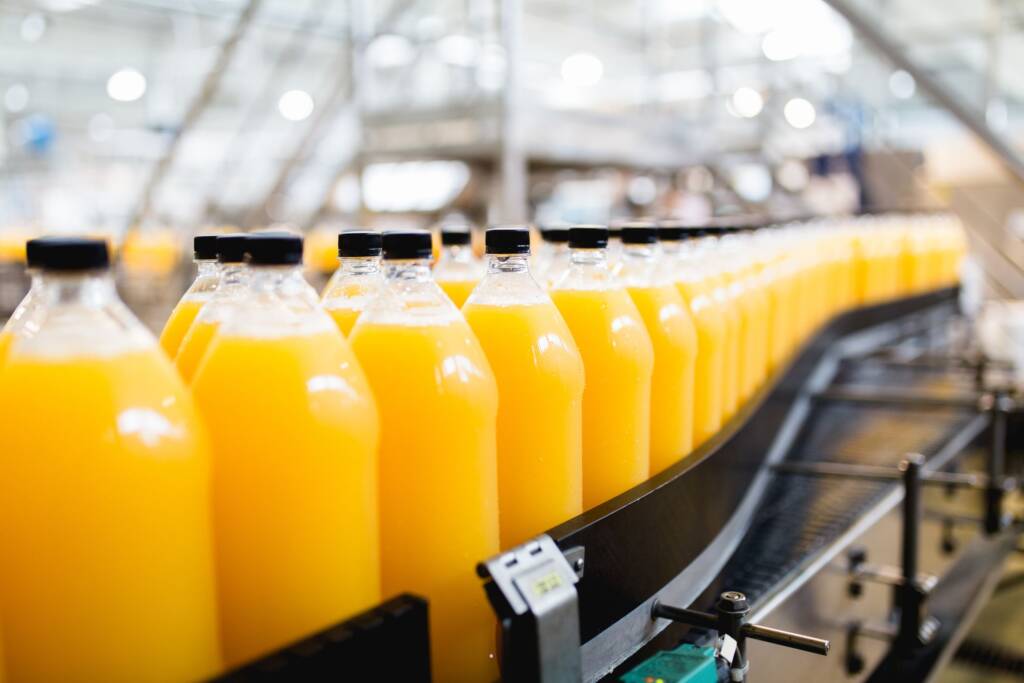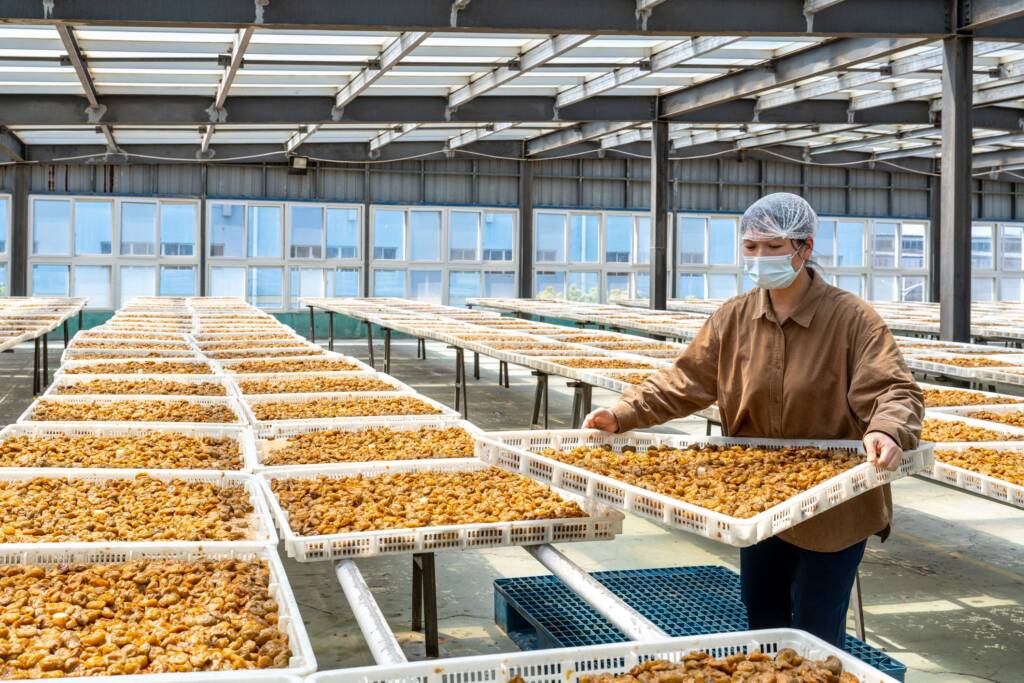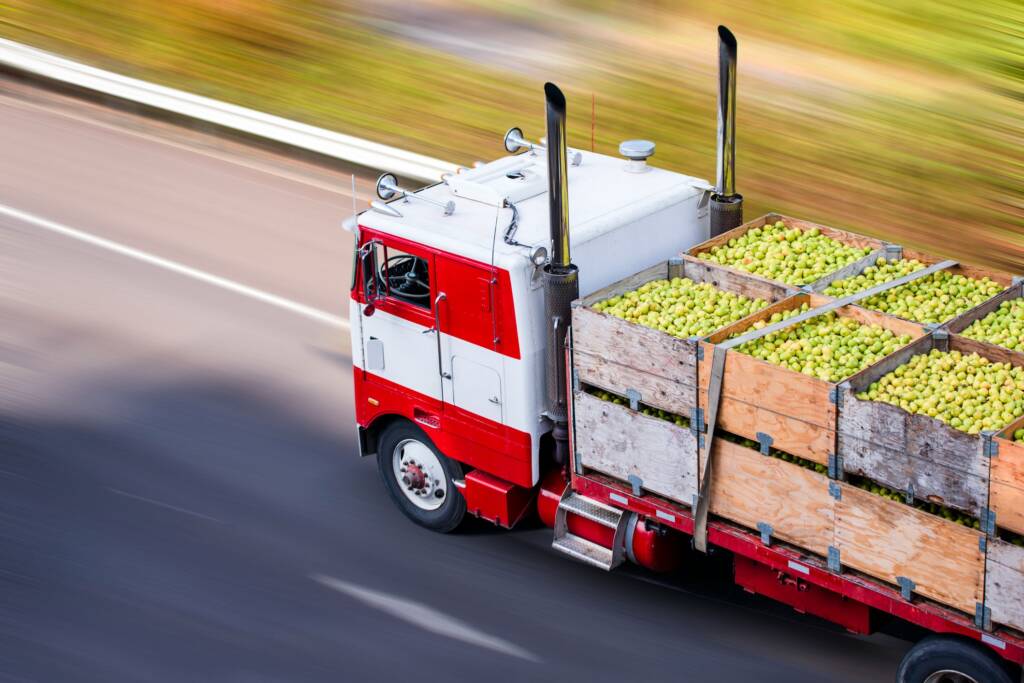Clarity® Software
Support your brand’s transformation to item-level RFID with the number one enterprise-level software of its kind, with applications customized for stores, distribution centers, and factories.
Unparalleled RFID capabilities to enhance operational efficiency, accuracy, and regulatory compliance throughout the entire food supply chain.
Inventory control is an ongoing challenge for food operators. Inaccurate inventory leads to unnecessary costs and dissatisfied customers as well as significant food waste, with grocery stores throwing away billions of pounds of food annually, simply because it is not fresh enough.
Food companies are also responsible for complying with the latest traceability and food safety regulations. In instances of recalls, swift traceability is of paramount importance to quickly identify affected products and minimize impact, safeguarding consumers and brand reputation.
RFID tracks expiration dates for a First-Expired-First-Out (FEFO) strategy, prioritizing short-shelf-life products, reducing waste, and boosting consumer confidence.
RFID food technology improves recall efficiency, identifying affected batches, tracking product distribution, minimizing recalls, reducing retrieval costs, and ensuring consumer safety.
Clarity® Food RFID tech cuts food waste with real-time data, improving inventory management, reducing spoilage, and enhancing demand forecasting for sustainability.
RFID tech ensures regulatory compliance, like the FSMA, by tracing products through the supply chain, preventing penalties, and building consumer trust.
RFID boosts operational accuracy and inventory management by providing real-time data, reducing tracking errors, and enhancing supply chain reliability.
RFID optimizes supply chains with real-time product insights, enhancing operations, optimizing routes, managing inventory efficiently, and ensuring swift responses to disruptions.
RFID in food supply chains cuts labor, automates tracking, and minimizes manual tasks for inventory, orders, and quality control, boosting efficiency and saving costs.
RFID boosts food supply chain sales by enhancing efficiency, ensuring product availability, and providing transparent information for increased consumer trust.
State-of-the art RFID technology to transform operations across the food supply chain.


In less than 3 months, Clarity® improved one customer’s inventory accuracy from 76.6% to 98.6%.
It took one store associate 15 minutes to receive 3,579 items. Fast efficient receiving is routine with Clarity®.
In a 12-week period, Clarity® improved ‘frozen’ SKUs from 38% to 5.8%. This helped store associates identify, move, and sell, items that would have previously sat with no activity, unnecessarily taking space, or corrupting stock data.
Suppliers play an instrumental role in the seamless implementation of RFID, by creating the digital twin for each product at source. The integration of RFID with the food inventory management processes provides real-time insights into stock levels. This not only enhances operational efficiency but also lays the foundation for accurate traceability throughout the supply chain.


Within the distribution center, the strategic deployment of Clarity® RFID Food technology assumes a pivotal role, optimizing both inbound and outbound operations for heightened efficiency. Simultaneously, RFID facilitates streamlined inventory management operations, providing continuous, real-time updates on stock levels.
As products reach their destination in stores and restaurants, RFID technology becomes a key factor in augmenting efficiency for both inbound operations and inventory management. By providing a real-time snapshot of inventory levels, Clarity® RFID Food empowers store staff to make informed decisions, thereby reducing inefficiencies associated with stock discrepancies and manual errors.

Creating the foundation you need to empower enterprise-wide transformation from SKU to batch operations.
Enterprise RFID Software Platform
Brands Served Globally
Items Connected with Digital ID
Stores Deployed with Clarity®




“RFID in food” refers to using Radio-Frequency Identification (RFID) technology to track and manage food products throughout the supply chain. This technology uses RFID tags containing electronic information and RFID readers to automatically identify and track food items from production to point of sale. It enhances food safety by providing precise traceability, reduces waste through efficient inventory management, and increases consumer trust by ensuring transparency about the food’s origin, handling, and freshness. By implementing RFID, food retailers and suppliers can ensure better compliance with health standards and deliver a superior customer experience with accurate product information. Talk to SML’s RFID food experts today for more details.
RFID technology in restaurants is used to enhance operational efficiency, customer service, and inventory management. It allows real-time tracking of ingredients from delivery to use, ensuring food freshness and reducing waste. In fast-paced service environments, RFID can speed up order processing by instantly identifying items as they move through the kitchen to the table. RFID wristbands or cards can also be used for customer loyalty programs, enabling personalized service and seamless payment processes. By adopting RFID, restaurants can streamline operations, improve customer satisfaction, and gather valuable data to optimize service offerings. Contact SML RFID’s Clarity® Food experts today for more information.
In supermarkets, RFID technology is utilized for advanced inventory management, ensuring shelves are well-stocked and inventory is fresh. It allows for quick scanning of products without the need for line-of-sight, speeding up restocking processes and checkout times. RFID tags can also facilitate automated payments and self-checkout, enhancing customer convenience. Moreover, they provide invaluable data for supply chain optimization and can help manage the expiration dates of perishable goods, thereby reducing waste and improving the bottom line. Contact SML RFID’s Clarity® Food experts today to learn more.
RFID technology is reshaping food industry operations, delivering crucial enhancements in inventory accuracy, waste reduction, and supply chain transparency. Explore the pivotal benefits RFID offers to the food sector:
Accuracy Increase
RFID technology enhances accuracy in both operational processes and food inventory management. With RFID tags providing automated and real-time data on the movement and status of products, the likelihood of errors in tracking and inventory counts is significantly reduced. This increased accuracy not only mitigates the risk of stockouts or overstock situations but also ensures that the right products are delivered to the right locations, thereby improving overall food supply chain reliability.
Labor Reduction
Implementing RFID technology in the food supply chain offers significant benefits in terms of labor reduction. The automation of tracking and monitoring processes minimizes the need for manual labor in tasks such as inventory management, order processing, and quality control. By streamlining these operations, companies can allocate human resources more efficiently, leading to cost savings and improved overall operational efficiency.
Increased Efficiency
RFID technology streamlines operations by providing real-time insights into the movement and status of products. This increased visibility enables supply chain managers to optimize routes, enhance inbound and outbound operations, manage inventory levels more efficiently, and respond promptly to any disruptions. The result is a more agile and responsive food supply chain that can adapt to changing market demands and challenges.
Batch-level Traceability
Clarity RFID Food technology enables the implementation of a First-Expired-First-Out (FEFO) strategy by providing precise tracking of expiration dates and batch information. This ensures that products with shorter shelf lives are prioritized, reducing the risk of waste. The transparency in tracking expiration dates also contributes to consumer confidence, as they can trust that they are receiving fresh and safe products.
Regulatory Compliance
RFID technology plays a crucial role in ensuring regulatory compliance, such as the Food Safety Modernization Act (FSMA) in the USA. The ability to trace and monitor products at every stage of the food supply chain facilitates adherence to stringent regulatory requirements. This not only helps companies avoid penalties but also builds trust with consumers who are increasingly conscious of the safety and origins of their food.
Recall Management
In the event of a product recall, Clarity RFID Food technology significantly enhances the efficiency and accuracy of the recall process. By quickly identifying affected batches and precisely tracking the distribution of impacted products, companies can minimize the scope of recalls, reduce costs associated with retrieval, and, most importantly, protect consumers from potentially harmful products.
Waste Reduction
The implementation of RFID technology contributes to substantial reductions in food waste. Accurate and real-time data on product conditions enable better management of inventory, reducing instances of spoilage and ensuring that products reach consumers before their expiration dates. Furthermore, real-time tracking enables more accurate demand forecasting, allowing companies to maintain optimal inventory levels. This not only minimizes waste but also aligns with sustainability goals, benefiting both the environment and the bottom line.
Sales Lift
Ultimately, the integration of RFID technology in the food supply chain contributes to a substantial increase in sales. By improving operational efficiency, ensuring product availability, and enhancing overall customer satisfaction through accurate and transparent information, companies can capitalize on increased consumer trust and loyalty, leading to a positive impact on sales and revenue.
Contact SML’s Clarity® Food experts today to start reaping the benefits of RFID.
RFID technology can aid in complying with the FSMA (Food Safety Modernization Act) FDA rule by enhancing the tracking of Key Data Elements (KDEs) and Critical Tracking Events (CTEs) across the food supply chain. RFID enables real-time monitoring and traceability, addressing key aspects of FSMA:
1. KDEs Tracking:
– Product Information: RFID tags can store and transmit critical product information, including origin, processing details, and expiration dates.
– Batch and Lot Tracking: RFID facilitates precise tracking of batches or lots, allowing quick identification and isolation in case of contamination or recalls.
– Temperature Monitoring: RFID sensors can monitor temperature-sensitive products, ensuring compliance with temperature requirements throughout the supply chain.
2. CTEs Tracking:
– Location and Movement: RFID tags enable continuous tracking of the location and movement of products within the supply chain, providing a clear picture of CTEs.
– Handling and Processing Events: RFID helps capture events such as processing, handling, and shipping, ensuring a comprehensive record of critical steps in the supply chain.
3. Exporting Data:
– Data Accessibility: RFID systems provide centralized databases accessible by authorized stakeholders, ensuring quick retrieval of information during inspections or audits.
– Data Export Formats: RFID technology allows for the export of data in various formats, facilitating seamless integration with different systems, databases, and regulatory reporting requirements.
– Real-time Reporting: RFID systems can generate real-time reports, expediting the identification and resolution of potential issues to meet FSMA compliance requirements.